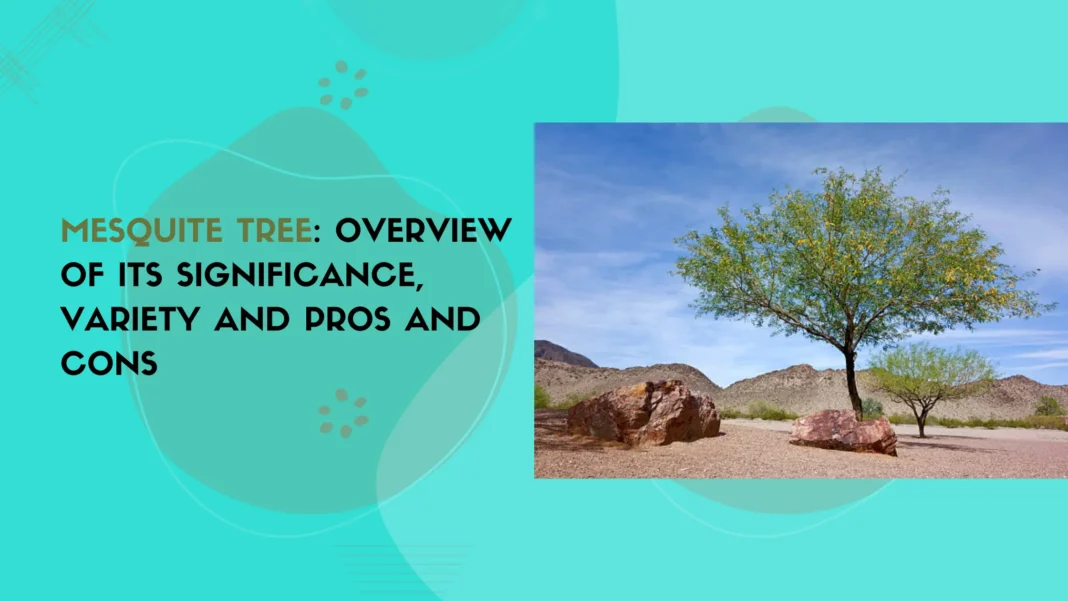This article covers the details of Mesquite Trees, their significance, different varieties and how they are beneficial to humans. Stay with the article.
What is Mesquite Tree
Mesquite Tree is scientifically known as Prosopis spp. These trees are related to the Legume family and are a breed of deciduous trees and shrubs. Mesquite plants are usually found in North and South America, popular for their flexibility in a diverse range of environments such as tropical and desert climates. Mesquite leaves are divide and captivating in nature and mostly these trees grow remarkably up to 30 feet in height.
One interesting fact about mesquite trees is that they have the potential to survive in arid regions with a dearth of water. Their root systems are deeply penetrate into the ground which allows them to fetch underground water sources, thus making them highly adaptable in drought conditions.
These trees have grown over time to efficiently use water, and their leaves are adjust to minimal water loss through the transpiration process.
With the inclusion of excellent adaptability, mesquite trees are also a prominent part of the ecosystems. They furnish shelter and shade for numerous wildlife species, such as insects, birds, and mammals.
The dense awning of these trees provides protection from the flaming sun, developing a cool climate for the relief of diverse sorts of organisms.
Types of Mesquite trees
There are around 40 different species of mesquite trees worldwide, among which three are the most popular ones.
1. Velvet Mesquite (Prosopis velutina)
Height: 30 to 50 feet
Growth rate: Medium
Location: Southern Arizona, Southwest, Northern Mexico
2. Honey Mesquite (Prosopis glandulosa)
Height: 15 to 40 feet
Growth rate: Fast
Location: Southern United States, Southwest, Northern Mexico, Southern Arizona
3. Screwbean Mesquite (Prosopis pubescens)
Height: Up to 25 feet
Growth Rate: Moderate
Location: Southwest U.S., Northern Mexico
The Pros and Cons of Mesquite Trees
Pros
- Mesquite Plants have extensive root systems that are strongly capable of penetrating deep into the ground and make robust resistance to soil erosion.
- The sharp thorns of Mesquite trees act as a shielding mechanism against potential threats and provide a natural defense system for the tree.
- Mesquite trees are one of the significant contributors to the soil ecosystem as they are capable of fixing nitrogen from the atmosphere.
- Mesquite tree seed pods, commonly called as mesquite beans, are a valuable aspect of the ecosystem. These pods are food sources for wildlife animals such as birds, deer, and squirrels. Additionally, these seeds are also utilize by humans in the form of multifaceted cooking ingredients. Mesquite seeds are a vital food resource for humans and animals as it contains high protein, essential nutrients, and fibers.
- The most significant characteristic of mesquite trees is their unusual drought tolerance. These trees can easily survive with minimum water supplies in arid and semi-arid regions.
Cons
- These trees can grow up to 30 feet or more. So, it is not suitable to grow in a limited space.
- Mesquite trees have thorns which may be dangerous be pet animals or children, in case of coming into contact.
For more information, related to mesquite trees, you must visit the Yourhomify portal once.
Also Read: https://searchsnets.com/


